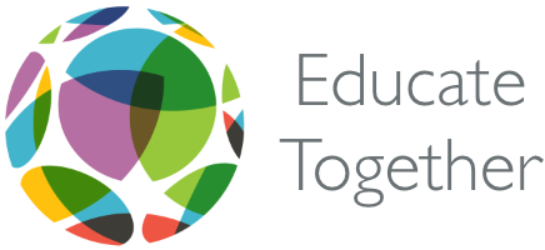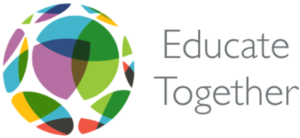Address for the Launch of the ‘Learn Together’ Curriculum by Educate Together, Ag Foghlaim Le Chéile, The Ark, Chldren’s Cultural Centre
Dublin October 6th 2004
Professor Kathleen Lynch, Equality Studies Centre, UCD
I am delighted to launch this new curriculum for Ethical Education. It is an innovative and imaginative set of resources that will enable children, teachers and parents from different social backgrounds and holding different beliefs, to learn to live with a deep understanding and respect for each other.
It is a great achievement, not just because of the practical guidance and back-up resources for teachers that it provides, but also because it demonstrates that spiritual and ethical education does not have to involve separate education. We can educate children together – spiritually, morally, politically and socially- who hold very different beliefs and come from different cultures and religious backgrounds.
It also dispels some myths about education in the multi-denominational sector, particularly the myth that these are some type of godless’ or what I might call ‘good-less’ places. It identifies multiple ways in which we can come to pursue our God or our sense of what is Good and Ethical together. It demonstrates, through practical exercises, shared ways of coming to know our own sense of what is of value in life. It identifies the common values that we share in our humanity and offers a pathway for educating our children to live in a pluralist Ireland.
What are also admirable in the programme are the action dimensions; it integrates theory and action in spiritual and ethical education. It has sharing exercises, co-operative projects, celebrations of religious events, and practical initiatives, such as a proposal for 3rd â 6th class students to develop an anti-racist charter in their school. In the section on ‘Cultivating Spiritual Growth’, there is a programme of work built around meditation that is truly innovative and imaginative. It is a most welcome development in a society where so much of the time, children are not educated to reflect on the meaning and purpose of life itself.
What is important about the curriculum also is its truly holistic approach to ethical education. Children will not just be educated about spiritual values or ethical principles emanating from their own belief or religious tradition. They will learn about the values, cultures and lifestyles of those who are different to them. They will learn to name difference with a language of respect. I particularly welcome the move in the programme to mainstream learning about Travellers’ culture and life style.
One of the major limitations of our education system at present is that there is often no safe space to learn about difference. When children lack a language of respect for those who are different to them, they tend to use the language that is available colloquially; this is often a derogatory language, a language of disdain, denial and trivialisation. If there is no legitimated language to challenge the language of disrespect, then children are left powerless. This programme will enable children to speak, to have a voice, to name their own world in respectful terms, and to come to know and name the world of others who are different from themselves in equally respectful terms.
Of course, the language of inclusion that is endemic to this curriculum will be of much lesser value, if all the differences in our own society are not addressed. Differences arising from the social divisions of class, gender, sexuality and Traveller status are ‘old divisions’ in Ireland, as indeed are divisions and segregations relating to disabilities. It is important that these differences are named and analysed in any programme concerned with equality and justice. There is a danger that we may overlook the familiar differences and divisions because of our depth of concern for newer and more visible divisions.
To promote inclusion, we must practice it. There is a challenge here not just to practice it in the classroom, but at organisational levels. Our teaching body needs to be more diverse, in terms of ethnicity, religion, dis/ability etc. We need teacher role models from different ethnic and other social backgrounds. Within schools we must ensure that our selection criteria for entry do not operate as discrete selection mechanisms for excluding particular groups of children, including those who are from working class backgrounds, those who are nomadic or those who are the children of migrant workers. For example, the first come, first served principle, may be a very fair and equitable in a society that is stable, where there is equality of information to all potential parents, etc., It may not be fair or equitable in highly mobile societies with deep class divisions. In the latter case, it is the most informed and the most resourced who will benefit most from the first come, first served, principle. We must keep our eyes on the practice of inclusion. Our staff and student body need to be diverse if we are to develop school climates that enshrine the ethical principles we espouse in the ‘Learn Together’ programme.
While Educate Together are rightly proud of their achievement and of the value of this new curriculum for their own schools, I think the proposed curriculum will be helpful to teachers outside the Educate Together sector as well. It provides a valuable set of tools, guidelines and resources for learning core ethical principles shared by the great majority of people in Ireland, regardless of their religious or personal beliefs. I look forward to having a similar programme for second-level education. Download in Word

